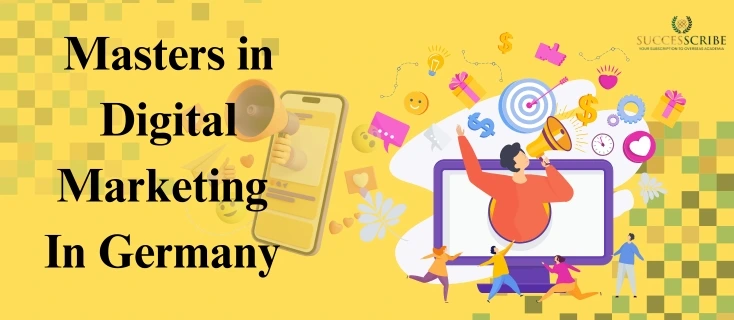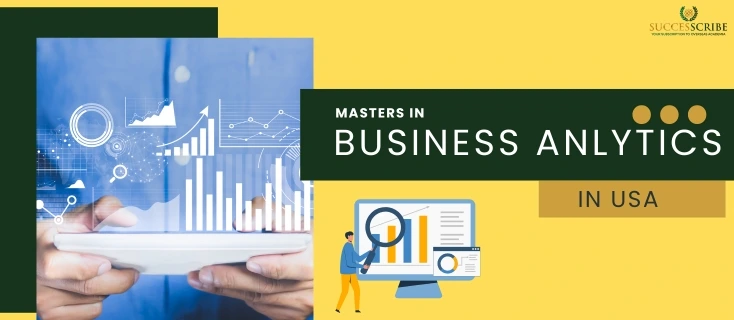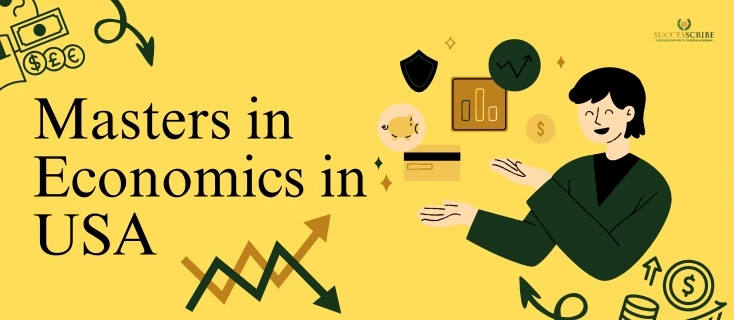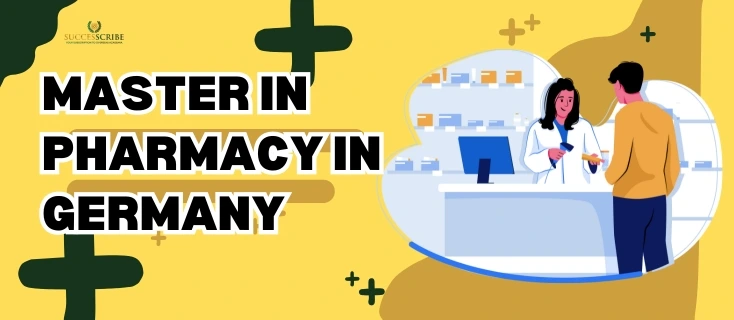Masters in Digital Marketing in Germany is an excellent investment for students seeking to outdo others in this fast-changing digital horizon. High-quality education, intensive industry connections, and broad learning environments in Germany are the building blocks for a successful career in digital marketing. Whether you are interested in Digital Strategy, SEO, Social Media, or Data Analytics, Masters in Digital Marketing can provide you with the skills and knowledge required to succeed in today’s competitive job market.
Why choose Masters in Digital Marketing from Germany
Germany is one of the countries known for its powerful economy and ever-innovative business hub. There are countless multinational corporations, startups, and booming digital marketing opportunities for specialists. These are just a few reasons why one should study Master in Digital Marketing in Germany:
1. High-Quality Education System
Germany houses some of the world’s top-ranked universities for programs in business and marketing, some of those include LMU Munich and Frankfurt School of Finance & Management.
2. Strong Focus on Digital Transformation
Germany’s digital economy amounts to about 6.5% of its GDP and thus gives a great insight into the country’s interest in digital innovation. Digital strategy 2025 is a scheme that encourages the development of digital transformation in all industries. This therefore creates an excellent setting for digital marketing studies.
3. Diverse Course Offerings
Master’s programs in specialized areas like digital marketing are offered by many universities covering various topics, including SEO, social media marketing, data analytics, and digital brand management. Most of the programs are offered in English and German which enhances the employability capabilities in the local markets.
4. Strong Economy Job Market
Germany has one of the strongest economies in Europe, ranking 3rd globally. Unemployment rates in Germany are relatively low, about 5.5%.
5. Networking opportunities
The universities hold ties with the industrial players, and therefore, students have the scope of internship and job placement where 70% of the students get their internship through connectives.
6. Innovative Learning Environment
Many programs are characterized by practical projects and internships. It has been evidenced that 90% of the graduates regarded practical experiences as very valuable. Institutions offer an opportunity for access to advanced tools and software that prepare the students to take their place in the job market.
7. Attractive Visa Policies for Students
The German student visa policy is relatively not so hard, for students can stay in Germany for up to 18 months after graduation to search for a job.
8. Competitive Tuition Fees
Compared to the USA or the UK, in Germany, there is a low tuition fee where international students could study and even up to 3 years without having to pay any tuition fees. It also ranges between €1,000 and €3,000 per year in the case of the public university. The availability of some scholarships for international students, such as the DAAD Scholarship helps.
9. Focus on Sustainability and Ethics in Marketing
The rising concerns of sustainability within marketing offer more emphasis on being sustainable, and the student learns the ethical perspective of marketing or even corporate social responsibility. Understanding regulations like the General Data Protection Regulation (GDPR) is crucial for digital marketers, and studying in Germany provides firsthand knowledge of these legal frameworks.
Related Post:- Study in Germany for Free after 12th
Eligibility Criteria for Masters in Digital Marketing in Germany
When considering a Masters in Digital Marketing in Germany, it’s essential to meet specific eligibility criteria set by universities. Here’s a detailed overview of the typical requirements:
Academic Qualifications
- Bachelor’s Degree: Should have a Bachelor’s degree preferably in related areas of study, for example, Marketing, Business Administration, and Communication.
- Minimum Grade Point Average (GPA): A minimum GPA of 2.5 on the German scale typically corresponds to around 80%.
English Language Proficiency
If courses are conducted primarily in English, students whose native tongue is not English must take some standardized tests.
| IELTS | Minimum score of 6.5 or higher |
| TOEFL | Minimum score of 90 (internet-based) or higher |
If courses are in the English Language then these are the following tests:
| Goethe Certificate | A minimum B2 is required. |
| TestDaf | Score of at least TDN4 in all sections. |
Work Experience (depending on program)
- Professional Experience: Some universities require or prefer applicants who have relevant professional experience especially in marketing, or in a related field. This is common in mid-career programs.
- Internship: Relevant practical experience in the field will add value to your application.
Motivation Letter
All programs require a well-written motivation letter or statement of purpose specifying your career goals, why you choose the program, and in what ways the program resonates with your professional aspirations. This is what makes the document critical to the admission committee when evaluating your suitability.
Letters of recommendation
Typically 2 – 3 letters of recommendation from the university professors or employer where you previously worked.
APS(Akademische Prüfstell )
This is to verify the authenticity of academic documents and ensure they meet German higher education standards.
Other Requirements
- Work Portfolio
- Entrance Exam Test Score
- Health Insurance
- Visa
- Offer Letter
Top Universities for Masters in Digital Marketing in Germany
Several prestigious universities in Germany offer Masters programs focused on digital marketing, equipping students with cutting-edge skills and practical experience. Below are some top institutions with detailed program overviews and key features.
| University | Program Name | Duration | Key Features |
| EU Business School | Master in Digital Marketing | 1 year | Focus on global digital marketing trendsInternational networking eventsCampus locations across Europe, including Germany |
| CBS International Business School | M.A in Digital Marketing | 1.5 years | Emphasis on practical digital marketing skillsInternational faculty with industry expertise |
| University of Europe for Applied Sciences (UE) | Master of Arts in Digital Marketing Management | 1.5 years | Focus on CRM and data analytics.Real-world marketing campaigns.Collaborative interdisciplinary learning. |
| Macromedia University of Applied Sciences | Master of Arts in Digital Marketing | 1.5 years | Industry collaboration and hackathonsTaught by industry expertsStrong career development support |
| Munich Business School | Master International Business (Specialization in Digital Marketing) | 18 months | Focus on global marketing trends Small class sizes Integrated internships and company projectsLanguage training options |
| Berlin School of Business and Innovation (BSBI) | Master of Arts in Digital Marketing | 1.5 years | Real-world projects and case studiesCareer coaching workshops International campus |
| IU International University of Applied Sciences | Master of Arts in Digital Innovation & Intrapreneurship (with a focus on Digital Marketing) | 2 years | Flexible online, on-campus, or hybrid learningScholarships for international students Collaboration with industry leaders |
| Frankfurt School of Finance & Management | Master in Management (Specialization in Digital Business & Marketing) | 2 years | Dual specialization options Partnerships with major firms (e.g. Deutsche Bank)High employability with 90% job placement |
l
Related Post:- Top universities for masters in Germany
Cost of Studying Master’s in Digital Marketing in Germany
The total cost of pursuing a Masters in Digital Marketing in Germany varies based on the type of institution (Private or Public), Location, and Student Lifestyle. Here is the break down
Tuition Fees
- Public Universities: The vast majority of Germany’s public universities operate on low fees mainly since education is highly subsidized. Many public institutions mainly charge only semester contributions between €200 – €400 per semester.
Example – EBS University’s Master’s program cost around €3,500 – €5,000 per semester by track.
- Private Universities: Tuition fees at private universities are generally higher than public universities, ranging between €10,000 – €20,000 per year depending on the institution
Example – IU International University and BSBI Master’s Program costs €12,000 – 15,000 per year.
Cost of Living in Germany
- Room rent: €300-€600
- Food and Grocery: €150 – €250
- Transportation through Public: €60 – €100
- Health Insurance: €110 – €120
- Miscellaneous (entertainment, internet, etc): €100 – €150
Visa and APS Processing Costs
- Visa Fee: €75 this includes a one-time application fee.
- APS Certificate (for Indian students): Approximately €50 – €75 for this verification process. This is compulsory for all the students going to German University.
Other Costs
- Learning Resources: €50 – €100 a semester
- Semester Contribution Fees: €200 – €400 for public universities
- Optional language classes: €500 – €1,500
Career Opportunites After Masters In Digital Marketing

Below are some more potential career opportunities for graduates to consider:
- Digital Brand Manager: Brand Strategy Management and Maintaining Consistency of Online Presence in all Areas.
- SEO Specilist: An SEO Specialist optimizes websites to improve search engine rankings, increasing organic traffic and visibility.
- Performance Marketing Specialist: Data-driven approach to maximizing the performance of your campaigns with measurable results
- PPC Specialist: Manages pay-per-click advertising campaigns so traffic and conversion come from decent sources.
- Affiliate Marketing Manager: Works on developing and managing affiliate marketing programs aimed to reach an extended brand through sales by the partners
- Marketing Automation Specialist: Develops and implements marketing automation tools to streamline the improvement process of marketing processes, helping and enhancing customer engagement.
- Digital Project Manager :Managed large-scale digital marketing projects, coordinated cross-functional teams, and ensured timely delivery.
- Consultant: Use expertise to advise businesses on how to optimize their digital marketing strategy.
Advanced Toics in Digital Marketing
In addition to the foundation courses, advanced topics usually involve the most recent trends and technologies used in the Master’s program for Digital Marketing in Germany.
- Artificial Intelligence (AI) in Marketing:
Students learn how marketing strategies could be enhanced by using AI tools and technologies from customer segmentation to predictive analytics. It ensures competitiveness as students understand applications of AI in marketing, like chatbots and the delivery of personalized content.
- Big Data and Analytics:
Students learn advanced analytics and data techniques, such as machine learning and data visualization, given the dominance of data-orientation in digital marketing. They learn to interpret complex datasets for optimizing marketing strategies and ROI in outcomes.
- User Experience (UX) and Customer Jouney Mapping:
Programs often emphasize that user experience design and customer journey mapping are the most important factors. The students are taught how seamless online experiences must be designed by consumers in which they will decide for implementation in their purchasing decisions, thereby increasing overall satisfaction and loyalty.
- Emerging Digital Marketing Trends:
Courses may specialize in newer trends such as influencer marketing, video marketing, and voice search optimization. Keeping with the latest technology used in digital marketing trends forms the dynamic requirement of the changing environment.
Conclusion
Pursuing Masters in Digital Marketing in Germany provides the highest standard of education, access to advanced technologies, and a dynamic business environment. Like universities in most other industrialized countries, Germany has low tuition fees, world-leading academics in the best possible conditions, and the opportunity to gain practical experience during internships. Besides, the robust German economy as well as the modern marketing scenario and excellent job opportunities create a perfect ambiance for digital marketing professionals.
Related Post
Highest paying companies in Germany
Top universities for masters in Germany
Blocked account in Germany
Low cost universities in Germany
r











